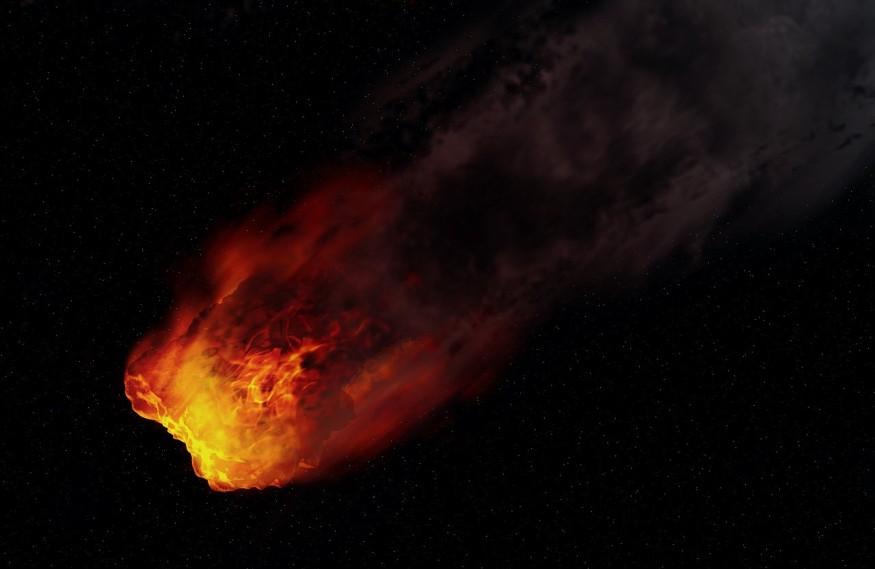
The fireball spotted in Cambridge and Hull in England may be related to the upcoming Lyrid meteor shower, according to experts.
Rebecca Holmes and her husband saw the fireball, a bright orange object that lit up the Humberside, Hull skyline, while they were gardening at home. "It was so bright orange and it was just gliding really slowly like something was burning but it was definitely too slow to be a shooting star," she said.
The fireball looked like a plane or a rocket, Holmes added. It was similar to what Dr. Robert Massey, the deputy executive director of the Royal Astronomical Society, saw in Cambridge.
"The burning object moving through the sky on Wednesday night looks a lot like an aircraft contrail to me," he told Daily Mail.
Experts believe these were meteors that visited early from the meteor shower. Brad Gibson, the Director of the E.A. Milne Centre for Astrophysics at the University of Hull said, "the most likely explanation as to the object reported in the sky over Hull on Sunday evening is that it was a meteor."
Lyrid meteor shower
According to the National Aeronautics and Space Administration (NASA), "The Lyrids are one of the oldest known meteor showers: Lyrids have been observed for 2,700 years."
Gibson said the meteor shower happens "between April 16 and 25 every year. 'During this time period, it is possible you could see anything between 10 and 15 visible per hour in the sky.
The annual phenomenon is caused by Comet Thatcher. It left debris behind when it last visited the inner Solar System in 1861, said NASA. However, it will take almost 250 years for the comet to return, burning up as it enters Earth's atmosphere.
Now easier to see Lyrid 2020
There are almost 2.5 million confirmed cases and over 170,000 deaths worldwide due to the Coronavirus Disease 2019 (COVID-19), according to Google. The Andalou Agency (AA) reports, "COVID-19 pandemic's global cost could range from $2 trillion to $4.1 trillion -- 2.3% to 4.8% of the global gross domestic product (GDP), the Asian Development Bank (ADB) said."
Aside from health and economic losses, there is one unintended consequence of COVID-19: lower global pollution. This will make watching the Lyrids - and the stars - easier to do.
Delhi, India, is the place to be to watch a meteor shower. According to Vogue, "you can see the stars in Delhi, a city where people wore masks long before the coronavirus to protect themselves from thick car fumes and industrial exhaust." This was also apparent in China, where NASA satellites picked up 30% lower nitrogen dioxide levels across the country in January.
Meanwhile, in the US, smog in Los Angeles, California, lifted in March. The Environmental Protection Agency said there was nothing but "clear blue skies and better air quality than the city has experienced in almost 40 years." In New York, carbon monoxide emissions were cut in half.
Whether it was a stray meteor or contrail, which turns orange when illuminated by a sunset, "people may be looking to the sky a lot more," said Gibson.












